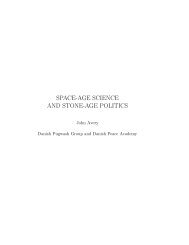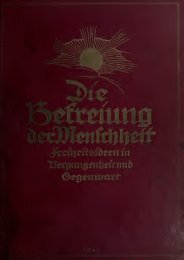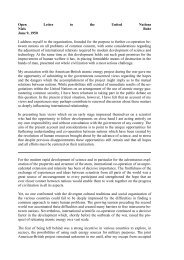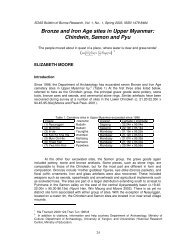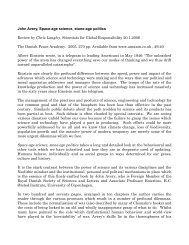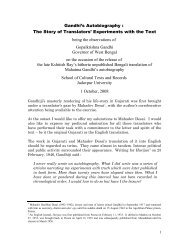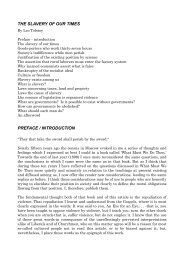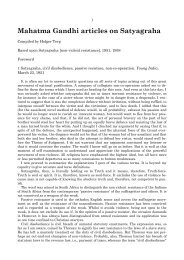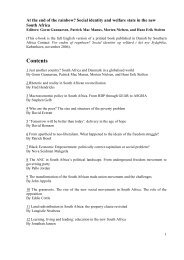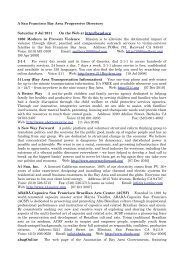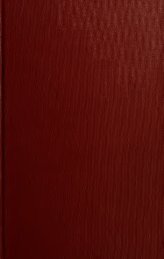Untitled
Untitled
Untitled
Create successful ePaper yourself
Turn your PDF publications into a flip-book with our unique Google optimized e-Paper software.
56<br />
deserved graves ? Perhaps he thinks the good men<br />
had no business there, and that they should have<br />
gone home, as he did, leaving the regular authorities,<br />
and the rioters, and Mr. Garrison, to settle it among<br />
themselves as best they might.<br />
As to calling out the militia, and getting the ten<br />
men shot out of hand, the Mayor had no more<br />
authority to do it than had Mr. Phillips himself.<br />
The legal process by which the militia could be got<br />
on the ground would have taken all night for its<br />
execution.<br />
It may be profitable<br />
here to examine the law in<br />
regard to the conduct of the military in quelling<br />
disturbances.<br />
(1.) By what process could a Mayor<br />
militia to suppress a mob ?<br />
call out the<br />
Mayors of cities had no statute authority, under<br />
the laws of the Commonwealth, to issue orders<br />
directly to the militia, until the year 1840. (Ch. 92,<br />
sec. 27.)<br />
Previous to that time, judges of certain courts,<br />
and the sheriff of any county, within his precinct,<br />
could issue warrants to the military officer com<br />
manding the battalion or company<br />
nearest the<br />
scene of disturbance, to quell the riot. (Rev. Stat.<br />
12, 134. But the Act of 1840 added, in explicit<br />
the Mayor of any city."<br />
terms,<br />
"<br />
By the constitution of Massachusetts (1780, ch.<br />
2, sec. 1, art.<br />
7), the militia were placed entirely<br />
in the control of the Governor as commander-inchief,<br />
and this would effectually cut off any commonlaw<br />
duties of mayors under the English system.



